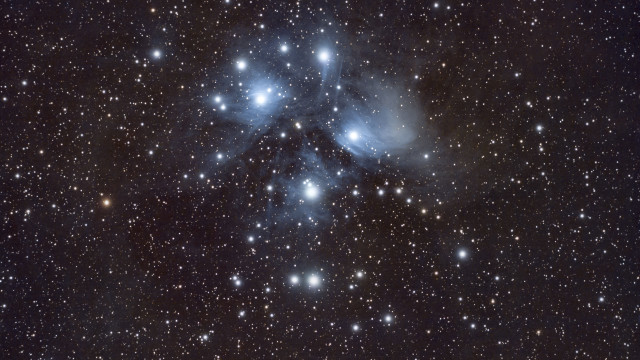Astronomers have discovered three previously unknown satellites of planets hiding out of sight at the edge of the solar system. According to Newsweek, these satellites orbit the two most distant planets – one around Uranus and two around Neptune. Thus, the total number of satellites found in the orbits of these planets reaches 28 and 16, respectively, according to the Center for Minor Planets of the International Astronomical Union.
"The three newly discovered moons are the faintest ever detected using ground-based telescopes around these two icy planets that are ice giants. Special image processing is required to detect such faint objects," noted astronomer Scott S. Shepherd of the Science Carnegie Institution, which made the discovery. Uranus' new moon is now named S/2023 U1, but it will be renamed after a character from one of Shakespeare's plays, like all other Uranus moons. It has a diameter of approximately 8 km and orbits its planet once every 680 days.
Neptune's two new moons are named S/2002 N5 and S/2021 N1, but will also be renamed after the Nereids sea goddesses of Greek myth. S/2002 N5 is about 24 km in diameter and S/2021 N1 is about 14 km in diameter.
All three moons have distant, warped and oval orbits around their planets, suggesting that they too may have been asteroids or pieces of space debris that fell into the orbits of these planets early in the Solar System. Young moons have also been found to have similar orbits to other smaller moons orbiting their planets, indicating that they may be fragments of the same proto-moon that was broken apart long ago by ancient comet or asteroid impacts.
Uranus' new moon was discovered using the Magellan Telescopes at the Las Campanas Carnegie Scientific Observatory in Chile on November 4, 2023, while Neptune's moons were first seen in September 2021 using the Magellan Telescopes and the Subarul telescope. Additional observations and data from previous observations were used to confirm the presence of these satellites. /BGNES







